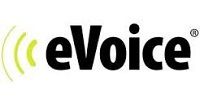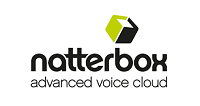What Is Digital Voice Logging System?
A digital speech logging system, sometimes referred to as a voice recorder or call recording system, is a technological device that records and stores audio of radio broadcasts, phone conversations, and other voice communication. Digital voice logging systems, as opposed to conventional analog recording systems, convert and store voice signals in a digital format using digital technology.
Compared to analog systems, this enables more storage capacity and improved sound quality. After then, the recordings can be safely saved and retrieved for subsequent replay or review. In order to precisely record and preserve crucial talks for legal or training purposes, digital voice logging systems are frequently employed in sectors including emergency services, contact centers, and financial institutions.
Typically, these systems include hardware like call recording cards or interfaces that link to phone lines or communication devices, recording software, and a central server or storage device. With the help of the software's time-stamping, indexing, and sophisticated search functions, finding particular recordings within the enormous storage capacity is made simpler.
In order to provide a thorough record of every discussion, certain digital voice logging systems can additionally capture related information like caller ID, call duration, and call direction in addition to audio recordings. Together with the audio recordings, this data can be exported and kept for later analysis and system integration.
Examining a digital voice logging system's storage capacity, scalability choices, and compatibility with current software and communication devices is essential before making a purchase. Additionally, confirm that the system complies with legal requirements and provides security measures to safeguard private recordings.
What Are The Recent Trends In Digital Voice Logging System?
Recent technological developments and the growing need for secure, precise, and real-time audio data recording and storage have fueled a rapid evolution in the field of digital voice logging systems. The market for these systems has grown extremely competitive due to the introduction of new industry standards and the constantly shifting demands of enterprises. To make an informed choice as a buyer, it's critical to keep up with the most recent developments in digital voice logging systems. Here are a few current trends to think about:
1. Integration With Cloud Technology: Over the past few years, cloud-based recording and storage solutions have grown in popularity. This pattern has spread to the market for digital voice logging systems, where an increasing number of suppliers are providing cloud-based solutions. The benefit of these systems is that they provide secure, remote access to speech data, which facilitates the management, retrieval, and sharing of recordings.
2. Artificial Intelligence Implementation: Businesses now have more options thanks to the incorporation of artificial intelligence (AI) into digital voice logging systems. Automatic transcription and classification of recordings by AI-powered systems facilitates data search and analysis. Additionally, this function increases overall accuracy and decreases the time and effort required for human transcription.
3. Improved Data protection: As cyber threats and data breaches increase, businesses are becoming increasingly concerned about data protection. Digital voice logging systems are using improved security features like encryption, multi-factor authentication, and role-based access control to solve this problem. This guarantees that private audio information is protected and available to authorized individuals only.
4. Voice Biometrics Implementation: Another new development in digital voice logging systems is voice biometrics. These systems can reliably identify and authenticate people based on their speech by utilizing distinctive vocal traits. This feature gives the system an additional degree of protection and does away with the necessity for conventional passwords.
5. Mobile Access And Compatibility: Professionals must be able to access their voice recordings while on the road in the hectic corporate world of today. Digital voice tracking systems are therefore becoming more and more mobile-friendly; many of them include user-friendly mobile apps and are compatible with a variety of devices. This enables users to control and view recordings from any location at any time.
Benefits Of Using Digital Voice Logging System
One technology option that enables businesses to record, store, and handle voice communications in a digital format is a digital voice logging system. Traditional analog recording techniques have been superseded by this cutting-edge system, which offers a number of advantages to companies of all kinds. The benefits of utilizing a digital voice logging system will be discussed in this buyer's guide, which will also assist you in choosing the best one for your company.
1. Increased Accuracy And Clarity: The increased accuracy and clarity of recorded conversations is one of the key advantages of utilizing a digital voice logging system. Audio from analog recordings might become muffled and distorted due to quality degradation. Modern technology is used by digital voice logging systems to guarantee high-quality recordings, which facilitate later comprehension and analysis of talks.
2. Efficient Retrieval And Storage: Digital voice logging systems eliminate the requirement for physical tape or CD storage. The burden of organizing and keeping physical copies of all recordings is removed because they are all saved in a digital format. Digital recordings may also be readily searched by time, date, and other criteria, which makes it simple and quick to access particular talks when needed.
3. Secure Data Management: The confidentiality and integrity of recorded conversations are guaranteed by a digital voice logging system's secure data management features. Organizations can rest easy knowing that their critical data is safe from unwanted access thanks to features like audit trails, encryption, and access control.
4. Compliance And Risk Management: There are stringent laws governing the recording and archiving of voice interactions in a number of sectors, including healthcare, banking, and customer service. Businesses can lower their risk of fines and legal problems by using a digital voice tracking system to assist them comply with these rules. Additionally, it offers a verified log of conversations that can be utilized as proof in court or during investigations.
5. Improved Performance And Productivity: Digital voice logging systems provide sophisticated capabilities like call tagging, real-time monitoring, and automated transcription, which can raise worker productivity and performance. Supervisors can train their employees to increase sales and customer service, listen to live calls, and offer feedback. Employees can concentrate on other crucial duties by using the automatic transcription option, which can help save time and effort.
6. Cost Savings: Over time, firms may save money by implementing a digital voice tracking system. As previously stated, recordings do not need to be physically stored, which lowers the expenses related to purchasing and maintaining tapes or CDs. Additionally, the organization may save money by reducing the amount of time spent on manual operations like sorting and transcription.
Important Factors To Consider While Purchasing Digital Voice Logging System?
To make sure you are investing in the best digital voice logging system for your needs, it is crucial to take into account a number of things. For companies, contact centers, and other organizations that need to accurately and securely record phone conversations, a digital voice logging system also referred to as a speech recorder or voice logger is an essential tool. The following are important things to think about before investing in a digital voice recording system:
1. Recording Quality: Recording and storing phone conversations is the main function of a digital voice logging system. As a result, the system's recording quality must be taken into account. To guarantee clear and sharp audio recordings, look for a system that can record in high-definition (HD) or, better yet, ultra-high-definition (UHD).
2. Compatibility: Verify that the system works with your current phone system before making a purchase. Whether you employ analog, digital, or IP phone lines, it should support them. It should also work with the functions of your phone system, like voicemail, conference calls, and call transferring.
3. Storage Capacity: When investing in a digital voice logging system, storage capacity is an important consideration. Depending on your needs, it should have a considerable amount of recording storage. Think about things like how long your calls are, how many calls you get each day, and how long you need to keep the recordings.
4. Search And Retrieval Features: When necessary, a solid digital voice tracking system should make it simple and quick to access recorded calls. To make the procedure quick and effective, look for tools like filtering choices, date and time search, and keyword search.
5. Security And Compliance: When it comes to recording and keeping private phone conversations, security is essential. Verify that the system you select has strong security features like encryption, user access controls, and adherence to industry standards like HIPAA and PCI-DSS.
6. Ease Of Use: You should select a digital audio recording device that is simple to use and intuitive. Your staff should be able to easily use the system with the help of an intuitive interface and a user manual or instructions.
7. Scalability: When investing in a digital audio recording system, take your company's future requirements into account. To prevent the need for regular upgrades, choose a system that can expand with your company.
8. Customer Support: Finally, take into account the vendor's degree of customer service. To guarantee seamless system operation, a trustworthy vendor should provide continuing technical support, training, and help. You can choose a digital voice logging system that fits the needs of your company and enhances customer service and communication by taking these considerations into account.
What Are The Key Features To Look For In Digital Voice Logging System?
When thinking about investing in a digital voice logging system, there are a few important characteristics to look for. These characteristics meet the unique demands and specifications of your company or organization in addition to guaranteeing a top-notch and effective system. Below are the important aspects to consider while assessing a Digital Voice Logging System:
1. Scalability: Selecting a system that can readily grow with your company is essential. Supporting numerous recording channels and offering more storage capacity for recordings are two examples of this. Future expansion is possible with a scalable system, which also eliminates the need to buy a new one soon.
2. High-Quality Audio: A voice logging system's primary function is to precisely record and save voice interactions for later examination and analysis. Choose a system that records audio in a high-quality manner with little distortion or background noise. During review and analysis, this guarantees accurate and clear replay.
3. Security: When working with sensitive voice recordings, privacy and security are crucial. Seek out systems with access control features like data encryption and user authentication, as well as safe storage. This guarantees the confidentiality of your recordings and guards against unwanted access.
4. Compatibility: Take into account how well the system works with your current phone setup. Whether you already use VoIP, mobile devices, or traditional landlines, the system should be able to interface with them without any problems. This guarantees seamless operation and guards against any interruptions to your communication procedures.
5. Search And Retrieval Features: Strong search and retrieval features are essential for a quality voice logging system. This makes it possible to quickly and effectively retrieve particular recordings using parameters like time, date, caller ID, or keywords. When performing post-call reviews and analysis, it saves time and effort.
6. User-Friendly Interface: To make the system easy to use and traverse, it should have an intuitive and user-friendly interface. For organizations with numerous users who might not be familiar with complex systems, this is especially crucial. Seek out systems with features that are simple to use and settings that can be adjusted.
7. Cloud-Based Option: The benefit of remote access and storage is provided by a cloud-based voice logging system. Users now have the freedom to see and listen to recordings whenever and wherever they choose. Additionally, it removes the requirement for extra hardware and upkeep expenses on-site.
8. Customer Assistance And Training: It's critical to select a system that offers dependable customer assistance and training alternatives in addition to the aforementioned characteristics. This guarantees that any technological problems can be fixed quickly and that your team is knowledgeable on how to use the system efficiently.
Why Do Businesses Need Digital Voice Logging System?
A digital voice logging system is one tool that has become crucial for sustaining efficient operations as businesses continue to traverse the rapidly changing and fast-paced world of technology. Businesses can record, store, and examine all incoming and outgoing calls thanks to this cutting-edge technology, which offers numerous advantages and chances for development. The following justifies the need for a digital speech tracking system in your company:
1. Legal Compliance: For legal and compliance reasons, all communications must be recorded and kept on file in sectors like healthcare and banking. In addition to ensuring that your company complies with these regulations, a digital audio tracking system makes it simple to retrieve individual calls in the event of an audit or legal dispute.
2. Quality Assurance: Organizations can evaluate the caliber of interactions between staff and clients by monitoring and reviewing calls using a digital audio logging system. This leads to better customer service and increased productivity by identifying areas for improvement and offering staff training opportunities.
3. Performance Evaluation: Employee performance reviews can also be conducted using the recorded calls. Managers can better grasp their clients' strengths and shortcomings and decide on their performance and training requirements by paying attention to their interactions with them.
4. Dispute Resolution: Having recorded calls can be quite helpful in settling conflicts that may arise from disagreements or miscommunications. To properly evaluate a scenario and arrive at a just conclusion, businesses might review the call recordings.
5. Useful Information: A digital audio recording system can also offer useful information on the needs, preferences, and behavior of customers. Businesses can find patterns and trends in call data analysis, which can aid in strategic decision-making and operational improvement.
6. Better Security: Businesses need to take precautions to safeguard sensitive data because cybersecurity risks are increasing. A digital voice logging system provides safe call recording storage, shielding private client information from possible security breaches. Businesses can gain a competitive edge in today's market by putting in place a digital voice logging system, which has many advantages. It is a crucial instrument for every company hoping to prosper in the digital era because of its capacity to guarantee legal compliance, boost quality assurance, permit performance reviews, aid in dispute resolution, offer insightful information, and strengthen security.
How Much Time Is Required To Implement Digital Voice Logging System?
A number of variables, including the organization's size, the system's complexity, and the degree of customization needed, can affect how long it takes to establish a digital voice logging system. However, the usual time to fully establish a digital speech logging system can range from a few weeks to a couple of months.
Assessing your organization's needs and identifying the features and capabilities needed is the first stage in putting a digital voice recording system into place. Key stakeholders may need to be consulted, a needs analysis may be carried out, and an implementation process plan may be developed. The system must then be set up and adjusted in accordance with the particular needs of your company.
Customizing the data fields, setting up user accounts and permissions, and integrating the system with pre-existing hardware or software could all be part of this. The system must be tested after it has been configured to make sure it is operating correctly and fulfilling the requirements of your company. Before implementing it for the full company, a small-group trial run may be necessary.
Lastly, users must receive instruction on how to operate the digital voice logging system. This can involve instruction on how to use search and retrieval tools, create reports from the system, and correctly record and access audio recordings.
All things considered, a digital voice logging system's implementation procedure is an essential stage in guaranteeing its success in your company. To guarantee a seamless and successful implementation, it is crucial to carefully prepare and commit the required time and resources.
What Is The Level Of Customization Available In Digital Voice Logging System?
A digital voice logging system's degree of customization is determined by its particular features and capabilities. Digital voice tracking systems generally provide a great degree of customisation, enabling customers to modify the system to suit their unique demands. The recording settings are one of the primary ways to personalize a digital voice tracking system.
Users can select which channels or lines to record from, establish a maximum recording period, and decide whether to record all calls or just a subset of calls. They can also alter the recordings' format and audio quality. Furthermore, sophisticated search and retrieval features are frequently included in digital audio logging systems, making it simple for users to locate particular calls or call segments.
Users may search by date, time, phone number, phrases, and more with this extremely customized search feature. In order to make the system easier to use and traverse, users can also alter its user interface. This can involve selecting which features to show on the main screen, reorganizing menus, and making unique shortcuts.
Additional customization options are made possible by the integration that certain digital voice logging systems provide with other programs or systems. For simpler organizing and analysis, users can tag and classify recordings by integrating the system with their customer relationship management (CRM) software.
Which Industries Can Benefit The Most From Digital Voice Logging System?
Businesses and organizations in a variety of industries can benefit greatly from the digital voice logging system, which offers many advantages like better customer service, more efficiency, and improved quality control. We will examine which industries stand to gain the most from this technology and why in this buyer's guide.
1. Call Centers And Customer Service: Call centers and customer service departments are among the top industries that stand to gain from digital voice logging systems. Call center representatives can use these technologies to evaluate and assess consumer interactions, pinpoint areas in need of development, and guarantee high-quality service. To ensure that agents are prepared to handle a variety of consumer situations, archived call recordings can also be used for training.
2. Healthcare: Digital voice logging systems are widely employed in clinics, hospitals, and other medical facilities in the healthcare sector. These systems aid in adherence to healthcare standards and enable the precise recording of patient interactions. By recording doctor-patient talks that can be used for training and assessment later on, they also help with quality assurance.
3. Financial And Insurance: The financial and insurance sectors handle private data and have stringent regulatory requirements. Systems for digital voice logging assist in safely recording and archiving calls for use in audits and future reference. In addition to providing a record of agreements and contracts between customers and businesses, these systems guarantee the accurate recording of financial and insurance transactions.
4. Government And Law Enforcement: For the goal of providing evidence, government organizations and law enforcement divisions depend on digital voice recording devices. Calls are recorded and stored by the system, which can be used as proof in court cases and investigations. Furthermore, these tools help to monitor and enhance departmental communication.
5. Retail And Hospitality: Successful business operations in these sectors depend heavily on relationships with customers. Businesses can monitor conversations and better understand the requirements and preferences of their customers by implementing digital voice tracking systems. By using this data, marketing plans may be adjusted and customer service can be enhanced.
6. Transportation And Logistics: Every day, a large number of phone calls are handled by the transportation and logistics sectors. Digital voice logging solutions facilitate the tracking and management of these calls and guarantee precise recording of pickups, deliveries, and other relevant data. This facilitates efficiently addressing client problems and settling conflicts.
Conclusion
To sum up, any company looking to enhance its record-keeping and communication procedures can benefit greatly from a digital voice logging system. Businesses can improve customer service and training, among other aspects of their operations, while reducing legal risks by investing in a dependable and effective system. When thinking about buying a digital voice logging system, it's important to do your homework and weigh your possibilities.
Careful consideration should be given to elements including compatibility with current communication technologies, storage capacity, and recording quality. Furthermore, choosing a system that fits your company's budget and unique requirements is crucial. In addition to asking the selected provider for any further information or demonstrations, make sure to look for user evaluations and suggestions.
In the end, a carefully considered digital voice logging system can provide businesses with a number of advantages, such as increased customer satisfaction, compliance, and productivity. Businesses can confidently evaluate and manage their voice data with the correct technology in place, which improves decision-making and boosts overall success.






















